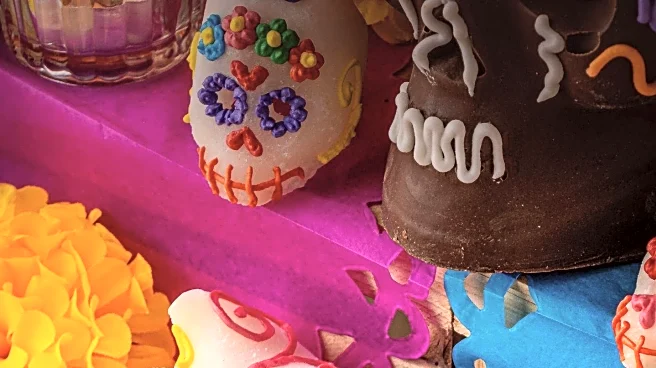What's Happening?
Mexico is gearing up to celebrate the Day of the Dead, a tradition that honors deceased loved ones. The celebration, observed on November 1 and 2, involves creating altars adorned with marigolds, candles,
and sugar skulls. The holiday, rooted in pre-Hispanic rituals and Catholic traditions, reflects Mexico's cultural diversity. Events include parades, vigils, and craft fairs across the country, with significant activities in Mexico City, Oaxaca, and Pátzcuaro. The Day of the Dead is recognized by UNESCO as an Intangible Cultural Heritage of Humanity.
Why It's Important?
The Day of the Dead is a significant cultural event that showcases Mexico's rich traditions and strengthens national identity. It attracts millions of visitors, boosting tourism and local economies. The celebration fosters community cohesion and provides an opportunity for Mexicans to honor their ancestors, reinforcing familial bonds. International recognition of the holiday highlights Mexico's cultural influence and promotes global understanding of its traditions.
What's Next?
As preparations continue, Mexico anticipates increased tourist activity, with hotel occupancy expected to rise. The government and local communities will focus on ensuring safe and successful celebrations. The event may inspire similar cultural festivals worldwide, promoting cross-cultural exchanges. Stakeholders, including tourism officials and local businesses, will likely assess the economic impact and explore ways to enhance future celebrations.
Beyond the Headlines
The Day of the Dead offers insights into Mexico's approach to life and death, emphasizing acceptance and celebration rather than mourning. It highlights the importance of preserving cultural heritage in a rapidly globalizing world. The event also raises awareness about the role of traditions in fostering social resilience and unity.











